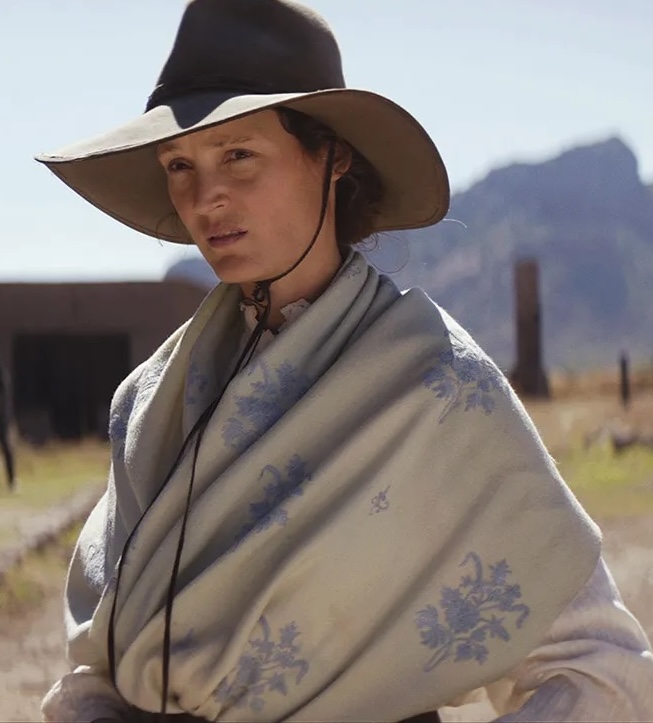


10/06/24
Cineworld, Edinburgh
I’ve always had a soft spot for Westerns but these days (on the big screen, at least) they’re about as rare as hens’ teeth. The Dead Don’t Hurt is clearly a passion project for Viggo Mortensen. As well as starring, he wrote it, directed it and even created the distinctive folk-tinged score. (For all I know, he did the catering as well.) As Westerns go, this is an atypical example, featuring few of the genre’s familiar tropes and cleverly subverting the ones that it actually does borrow. It’s handsomely mounted and beautifully filmed by cinematographer Marcel Zyskind.
Mortensen plays Danish immigrant carpenter, Holger Olsen, who, when we first encounter him, is bidding a sad farewell to his dying partner, Vivienne Le Coudy (Vicky Krieps), watched by their young son, Vincent (Atlas Green). From here the story flashes back to Holger’s first meeting with Vivienne, showing how he instantly falls under the spell of this headstrong, unconventional young woman.
The main action of the story occurs when Holger and Vivienne set up home together in a remote cabin, close to the town of Elk Flats, Nevada, a place dominated by corrupt landowner, Alfred Jeffries (Garret Dillahunt) and his violently-inclined son, Weston (Solly McLeod). Together with crooked Mayor Rudolph Schiller (Danny Huston), the Jeffries have the place pretty much under their collective thumbs – the evils of capitalism are already exerting a powerful influence and God help anyone who dares to oppose it.
When Holger decides to enlist in the Union Army to fight in the Civil War, his only option is to leave Vivienne alone to run the homestead and, of course, he is away for years. While he’s gone, Vivienne is at the mercy of Weston, who has had his eye on her from their first meeting…
The Dead Don’t Hurt unfolds a compelling story of anger and retribution and both Krieps and Mortensen portray their characters with sensitivity. The various shifts in time and place are handled with considerable skill and the scenes where Vivienne manages to grow exotic flowers in the heart of the Nevada badlands are particularly memorable. It’s clear from the outset that the story is heading (inevitably) towards darker territory and, while Weston is a relentlessly unpleasant character, there’s some explanation for why this might be the case.
Even a climactic showdown between hero and villain is understated and the film is brave enough to offer an open-ended conclusion as to where Holger and Vincent may be headed next.
While it’s unlikely to make much of a dent at the box office, this is enjoyable stuff and those who have a hankering for a decent Western should seek it out on the big screen, where those Nevada landscapes will look more impressive than on streaming.
3.8 stars
Philip Caveney





